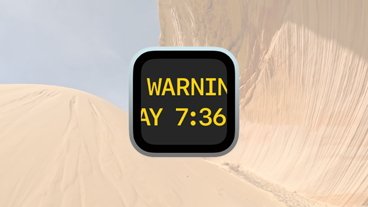Now free of any countersuits, Apple has grown its lawsuit against Mac clone maker Psystar to accuse it of further violations and to claim that others have contributed to its breaking copyright law.
it also charges the Florida-based clone builder with pushing buyers to commit copyright infringement, including violating the DMCA by circumventing Apple's restrictions in day to day use, and of violating Apple's trademark on the term SuperDrive used to describe the DVD burners in Macs.
But the most eyebrow-raising element remains the 18th paragraph, which explicitly states that Apple believes ten unknown people or companies — each nicknamed "John Doe" — have contributed on some level to the numerous violations named in the amended suit.
"On information and belief, persons other than Psystar are involved in Psystar’s unlawful and improper activities described in this Amended Complaint," the new section reads. "The true names or capacities, whether individual, corporate, or otherwise, of these persons are unknown to Apple. Apple will seek leave to amend this complaint to show the unknown John Doe Defendants’ true names and capacities when they are ascertained."
The statement is seen as uncharacteristic for Apple, which is throwing the full weight of both its legal team and its fact-finding resources behind a case against a comparatively small target. Erwan Hamon of Groklaw suggests not only that Apple may have reason to believe in a wider conspiracy but that Psystar's defiant posture may stem from the support of others behind the scenes.
While no direct clues have surfaced as to who if anyone might support Psystar, the company's Mac clones are known to be using pre-made, third-party code to bypass Apple's usual checks for official firmware during the Mac OS X Leopard installation process. The unofficial vendor's primary culpability is to perform the bootleg installations itself and market the systems as capable of running the Mac operating system despite Apple's licensing terms that forbid use on anything but its own computers.
 Katie Marsal
Katie Marsal






-m.jpg)






 Malcolm Owen
Malcolm Owen
 William Gallagher
William Gallagher
 Andrew Orr
Andrew Orr









-m.jpg)




101 Comments
I can see it now...
"Apple sues Dell, IBM, Microsoft, Gateway, and all other computer/software companies in conspiracy"
I can see it now...
"Apple sues Dell, IBM, Microsoft, Gateway, and all other computer/software companies in conspiracy"
Mostly Microsoft, at least is the only one known to had/have such plan against Apple.
I can remember that email that went public straight from Microsoft Headquarters. The one that wanted to drawn Apple with legal suits.
Since Zune and Vista are failures and the xbox platform still lacks of a real store and products.
For me looks like MS is going desperate.
Time will tell....
Dell, IBM, Microsoft, Gateway, and all other computer/software companies know that they CAN NOT get an OSX license. Otherwise they would be selling Mac clones. Psystar dig themselves into a hole they cant get out of.
Mostly Microsoft, at least is the only one known to had/have such plan against Apple.
I can remember that email that went public straight from Microsoft Headquarters. The one that wanted to drawn Apple with legal suits.
Since Zune and Vista are failures and the xbox platform still lacks of a real store and products.
For me looks like MS is going desperate.
Time will tell....
I don't know if the XBox is making any money, but I wouldn't call it a failure it is a good product with some good games.
The "persons or companies" stuff is just boilerplate.
It's way more likely that these ten "John Doe's" are individuals, and very very likely that what they are talking about here is the individual hobbyists in the OSX86 community that cracked open the protection in the first place.
You can't make an argument that Psystar circumvented the copy protection without showing how they did it, where the code comes from, etc. And once you discover the "hobbyists" in question, you have to treat them the same as Psystar under the law.
It's likely that Psystar has screwed up the lives of a lot of innocent people who are now going to be charged in court.